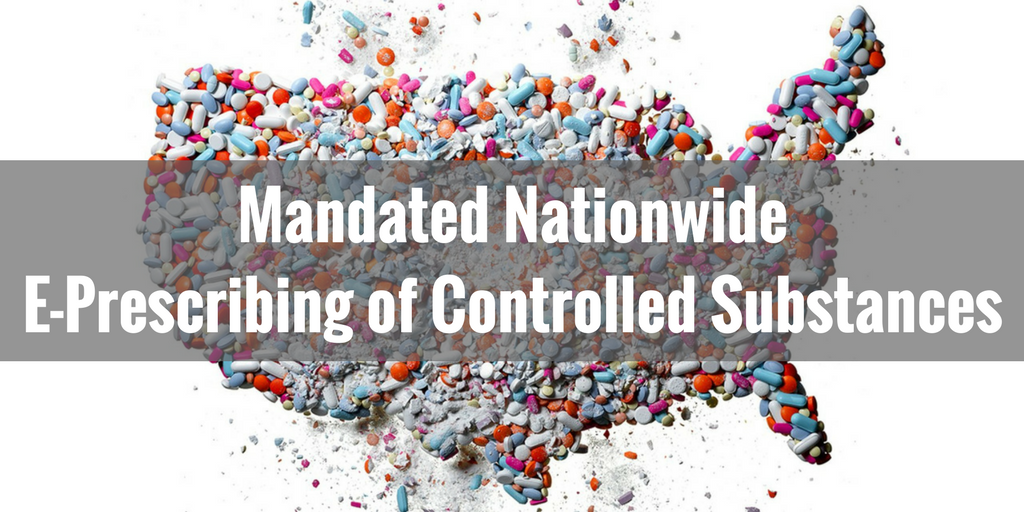
Earlier this week, a bipartisan group of U.S. Senators introduced the Every Prescription Conveyed Securely (EPCS) Act. Under the act, all controlled substance prescriptions under Medicare would have to be sent electronically. The aim of the bill is to combat the opioid epidemic by preventing fraudulent prescriptions and doctor shopping.
The legislation was introduced by four senators: Elizabeth Warren, D-Massachusetts; Michael Bennet, D-Colorado; Dean Heller, R-Nevada, and Pat Toomey, R-Pennsylvania.
As we wrote about previously, companion legislation was introduced in the House of Representatives in July by Congressman Markwayne Mullin (R-OK) and Congresswoman Katherine Clark (D-MA). House bill 35281 has a lot of bipartisan support with 21 cosponsoring representatives including 11 Republicans and 10 Democrats.
“We need to be using every tool at our disposal to fight the opioid epidemic,” Warren said in a statement2. “I’m glad to partner with Senator Bennet on a bipartisan bill that will help gather better data on the opioid epidemic while also helping health care providers make the best decisions for their patients.”
A Department of Justice report recently released found that misused prescription opioids are often obtained illegally using forged or altered prescriptions and by consulting multiple doctors. It was also found that most prescription fraud remains undetected.
“An epidemic of this magnitude requires us to address all aspects of the problem, starting with how providers prescribe opioids,” Bennet said in the statement. "This bipartisan legislation would expand a critical tool to track the use of opioids, ultimately reducing overdoses and saving lives."
Toomey added to the statement, “This commonsense measure will help improve tracking of opioid prescribing and reduce diversion due to forged prescriptions. This is a simple but important step in the direction of curbing opioid abuse.” Heller further added by stating, “This bipartisan legislation takes a critical step toward eliminating doctor shopping and duplicative or fraudulent prescriptions.”
The bill is proposed to go into effect in 2020 and does allow for some exceptions. These include prescriptions generated and dispensed by the same entity, economic hardship, technological limitations and other exceptional circumstances.
At MDToolbox, we strongly encourage all providers to not wait for legislation and to take advantage of the benefits of e-Prescribing controlled substances as soon as possible. It not only prevents fraud but makes things easier for prescribers as well. We are happy to answer any questions you may have about getting started with EPCS and offer a free 30 day trial so that you can see how quick and easy it is.
1. H.R.3528 - Every Prescription Conveyed Securely Act https://www.congress.gov/bill/115th-congress/house-bill/3528
2. Warren, Bennet, Heller, Toomey Introduce Bill to Combat Opioid Crisis with E-Prescriptions https://www.warren.senate.gov/newsroom/press-releases/warren-bennet-heller-toomey-introduce-bill-to-combat-opioid-crisis-with-e-prescriptions